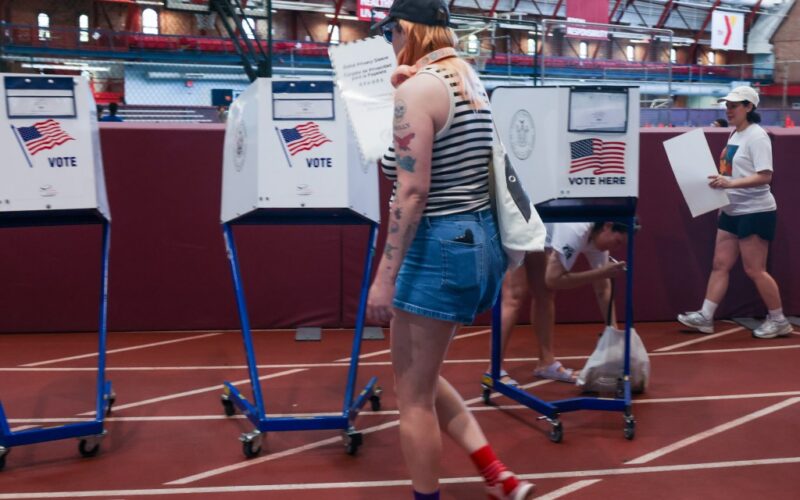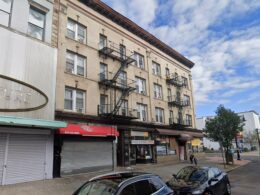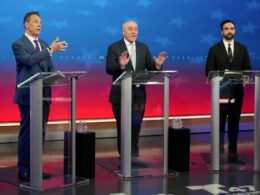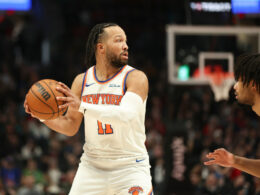This November, New Yorkers could be asked to vote on a ballot proposal to “open” NYC’s local primaries to all voters regardless of political affiliation. The idea may sound simple, but the commission tasked with evaluating these reforms has embraced the concept without doing the important work to understand how it would function — or whether it would actually benefit voters.
Opening our primaries is an incredibly complex effort that requires thoughtful implementation, broad consensus, and a deep understanding of city voters in order to make a difference. Instead, the commission is considering putting a rushed, unfinished concept onto the ballot that risks significant unintended consequences with no clear benefit to the public.
As leaders in the fight to pass major election reforms here in New York, we firmly believe that such a significant change should not be so flippantly put to voters. We urge the commission to slow down — not because this issue is not worth considering, but because this proposal is simply not ready for a decision.
Last year, Mayor Adams created a Charter Revision Commission to examine how the city can address a historic housing shortage. They are expected to propose a series of ballot questions asking New Yorkers to consider changes to how, when and where the city can build. But along the way, the commission expanded its focus to review our elections. Voters will likely be asked to decide whether our elections should be moved to align with federal elections in even-numbered years.
Opening up our primaries isn’t necessarily an issue that we object to, and amending our election system is not inherently a bad idea. But it is also an incredibly delicate process that must be done right.
In 2023, Common Cause New York issued a report on New York’s “unaffiliated” voters, who represent more than a million voters in New York City and are now the second largest voting bloc citywide.
Currently, these voters are locked out of the primaries. The commission’s likeliest proposal to fix this — known as a jungle primary — would take from California and other places that have made the switch (with muddled success, to be clear) by pitting all candidates against one another in one giant primary.
The commission has said it believes this could empower unaffiliated voters to have more say in meaningful elections, but it has not seriously considered any other forms of open primaries or heard balanced testimony about the impact of adopting different formats (spoiler alert: many academics say it has little, if any impact on turn out or other factors).
Significant changes tried elsewhere cannot just be applied to New York and expected to work without issue. The voting patterns of different communities, the history of our elections, and the recent introduction of other reforms are unlike anywhere else. Any changes to our elections must be evaluated fully, and include rigorous thought and research into how it would impact NYC’s unique environment for better or worse.
Amending our primary system can still be done smartly. But rushing such a substantive change on the ballot creates unnecessary division. Many of the community-based groups, who talk to voters day in and day out, and who led previous election reform efforts, have told the commission they were unaware changes to our primaries were under consideration. Giving them more time to research potential impacts and understand what’s at stake for the voters they work with would help significantly.
And even though proponents of open primaries have urged the commission to put the question to New Yorkers as soon as possible, we have nearly four years before it would make a difference anyway. New York’s next municipal elections will not happen until 2029, meaning affected communities can consider the various forms of open primaries that best suit NYC’s unique circumstances and build a citywide consensus that future commissions could address.
This Charter Revision Commission seems to understand that despite their best efforts, this proposal is not ready for the public. That’s why they have yet to confirm whether it will appear on this year’s ballot alongside other questions.
With less than two weeks until a final decision, we urge the commission not to rush this critical issue. Action to expand ballot access is good, and we commend the commissioners for recognizing the importance of including all voters in the democratic process. But when it comes to changing our elections, getting it right is far more important than doing it quickly. We’ve seen how election reform can be done well. Let’s continue that work.
Williams is the president of the NAACP New York State Conference. Lerner is the executive director of Common Cause New York.








